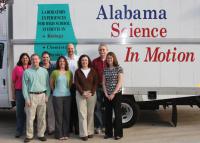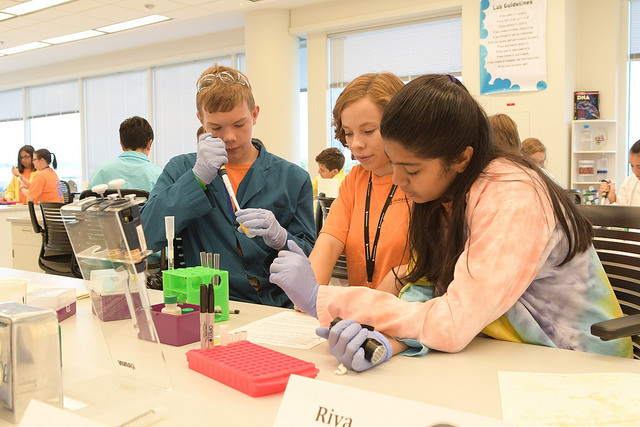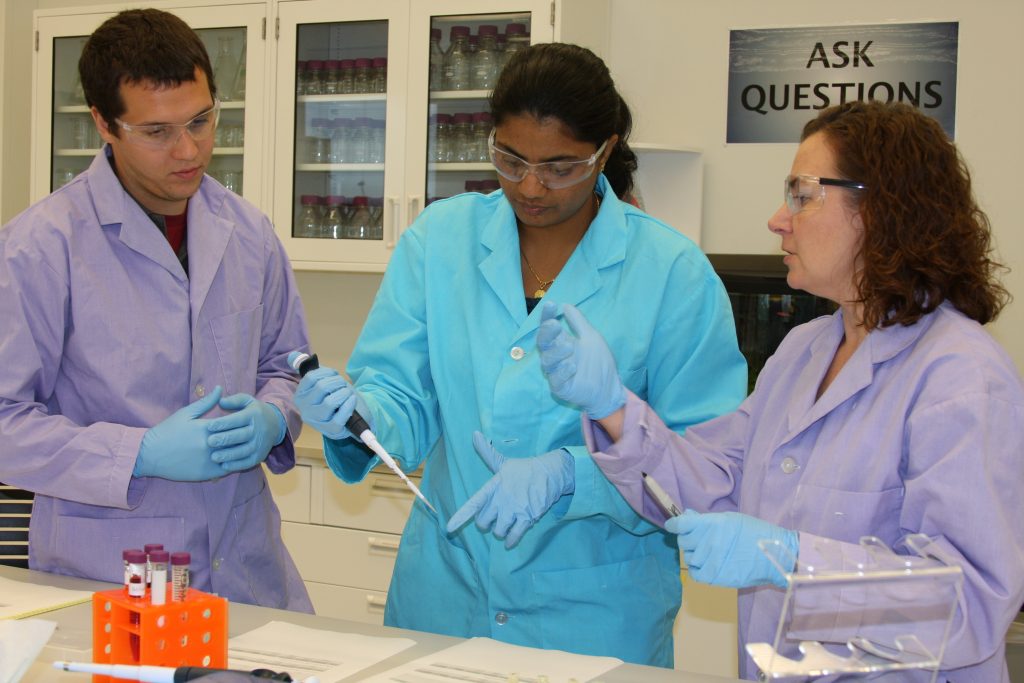HudsonAlpha educational outreach distributed 100 each of two new laboratory kits to all 11 Science in Motion sites across the state of Alabama in March. The kits are geared for 9-12 grade biology or genetics students and set for distribution to classrooms throughout the state as part of the Alabama Math, Science and Technology Initiative (AMSTI).
One laboratory kit, called G-Mod, is a hands-on lab to detect genetically modified corn and soybean byproducts in popular vending machine foods such as sandwich cookies and corn chips.
Students will use polymerase chain reaction technology to detect the genetically modified elements. Polymerase chain reaction technology is a fast, inexpensive technique for making an unlimited number of copies of any piece of DNA. Sometimes called “molecular photocopying,” PCR has had an immense impact on biology and medicine, especially genetic research.
The second recently distributed lab kit, HNPCC (Heredity Non-Polyposis Colorectal Cancer), was created for students to detect genetically inherited forms of colon cancer in a fictitious family. Two kits for high school students were previously released in fall 2008 – an expanded DNA extraction hands-on lab and the Disorder Detectives karyotyping kit. Educational outreach plans to release two more kits next fall, then concentrate on fine-tuning all existing kits. According to Adam Hott, coordinator of educational outreach, commercialization of the kits is forthcoming, but the first priority is that the Science in Motion sites have kits for distribution and are satisfied with HudsonAlpha content.
“The philosophy of bringing cutting edge research to market is being actively developed in the education kits,” Hott said. Kit development integrates heavily with HudsonAlpha’s Educator-in-Residence and BioTrain research and development internship programs.
“The HudsonAlpha Educator in Residence and BioTrain interns bring crucial input to the creation of our outreach kits because they know what is most useful and engaging for the biotech curriculum,” Hott said. “These laboratory kits are made for students by recent student and teachers.”
Educational outreach kit development and distribution is made possible through the U.S. Department of Labor via a Workforce Innovation in Regional Economic Development (WIRED) grant and HudsonAlpha.



